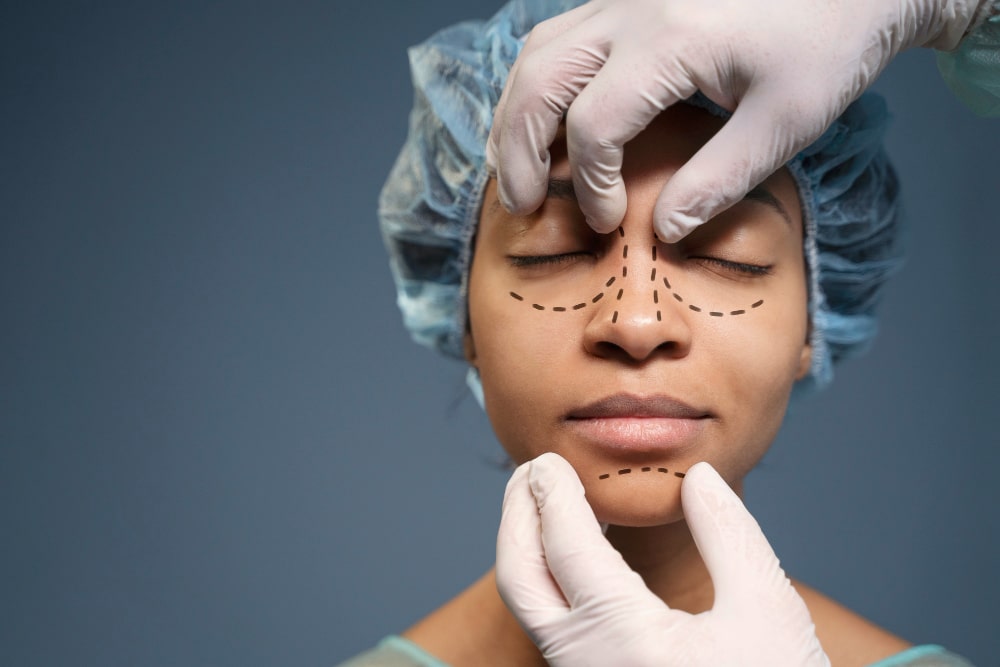Does Plastic Surgery Hurt? Why There is Minimal to No Pain in Modern Surgeries
Over 12.8 million plastic surgery procedures are performed worldwide in a year, and the number is constantly increasing. But even with such a large part of the population undergoing aesthetic procedures, a common question remains in the minds of the people: “Does plastic surgery hurt?”
Since plastic surgeries involve making incisions and stitches, however major or minor, it is natural for the operated site to hurt. However, plastic surgeons and medical technology ensure that you feel minimal to no pain during the surgery or your recovery period. Read on to know more about the topic, and the factors that influence it.
How Painful is Plastic Surgery?
Every person experiences pain differently, it is called their pain threshold. One person might not feel pain from a particular stimulus, but it could be significantly painful for another person with a low pain threshold.
With that said, plastic surgeries are usually not very painful. But why so? The process involves incisions and stitches, after all. This is because of two major factors discussed below.
1. Anesthesia and painkillers
Before you undergo plastic surgery, you will most probably have to meet with an anesthesiologist to determine which anaesthetic is safe for you to use during the procedure. Your doctor would administer the anesthesia right before the surgery, so you wouldn’t feel any pain during the procedure. The most people feel in such cases is some mild tugging or pinching sensation, that’s all.
After the surgery, the doctor would prescribe you some painkillers to take regularly for a few days to come. This keeps the pain at bay and helps make your recovery more comfortable.
2. Medical technology
Thanks to the advancements in medical technology, surgeries today are much simpler and less tolling on the patients. New techniques like minimally-invasive procedures and robot-assisted surgeries have reduced the surgery time as well as the number and size of incisions required for the surgery. Now most surgeries can be performed by only a few inches of an incision, meaning less pain during and after the surgery as well as a quick recovery.
Factors Affecting the Pain from Plastic Surgery
Medical advancements make undergoing surgeries and recovering from them a lot easier. But do they take away all the pain? The answer is subjective. Here are a few factors that affect how much pain plastic surgery might cause you.
1. Your pain threshold
If you have a low pain threshold, you might feel some pain even after taking medications. However, you can discuss this detail with your doctor and they might make the necessary dosage adjustments to help you with it. Remember to never change the dose of a medicine on your own accord.
2. Your age and health status
If you fall on the younger side of the age group and are healthy enough, it will be easier for you to deal with the difficulties that come with having surgery, including plastic surgery pain. If you have a health condition, you can ask your doctor if it would affect the surgery in any way. It is always best to clear any doubts you have before the surgery for the best experience.
3. The type of surgery
Every surgical procedure has different requirements. The number and sizes of incisions vary in every procedure. For instance, a facelift procedure requires more than one small incision but a tummy tuck requires a long incision along your abdomen. So if you are wondering “Does a tummy tuck hurt?” It is among the most uncomfortable plastic surgeries. However, the pain can be managed by medications and proper rest and diet.
Planning is the Key
Your plastic surgery experience largely depends on your planning. Consult your doubts and concerns with your doctor before the procedure. With a clear picture of what to expect, you can comfortably go through the procedure and recovery. Also, follow your doctor’s instructions closely and pay follow-up visits for a smooth recovery.
